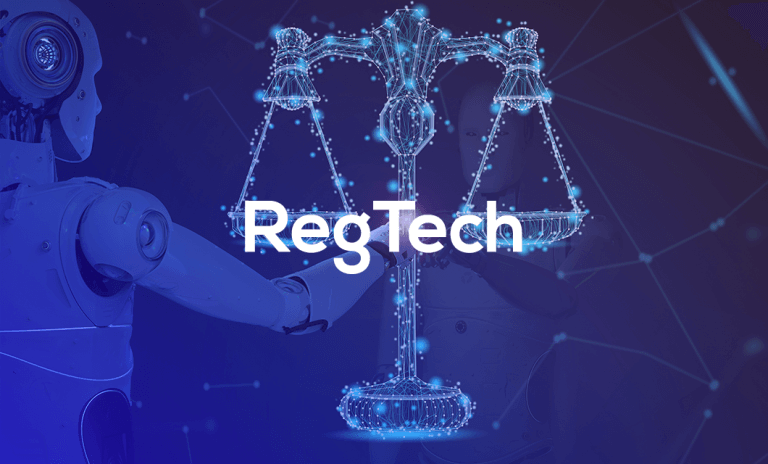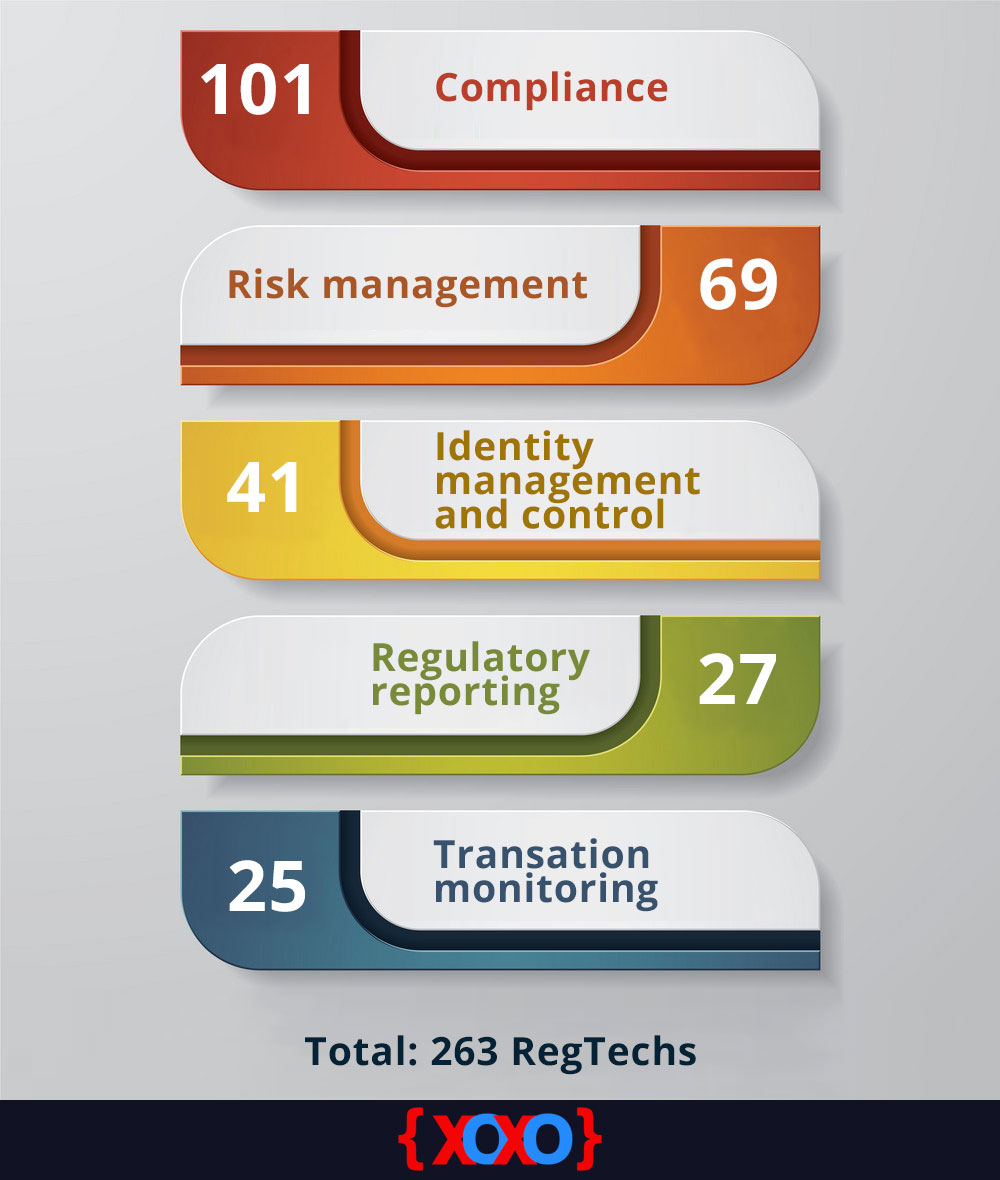- December 8, 2018
- Posted by: fyber
- Category: Development
Characteristics | Categories | Use
Regulatory Technology is also known as Regtech. Through this article, we are going to share knowledge about Regulatory technology, its origins, and explore how it is going to impact and benefit both customers and businesses.
Fintech impact customers, entrepreneurs, and financial institutions and they all have felt its impact over the last several years. In fact, Fintech banks are expected to invest more than $20 billion on technologies by 2017. one of the more recent technologies involved in the FinTech revolution is “RegTech”.
Regulatory Technology(RegTech): Definition

FCA (Financial Conduct Authority), a regulatory body in the United Kingdom, describes RegTech as the “adoption of new technologies to facilitate the delivery of regulatory requirements.”
Kari Larsen, counsel at Reed Smith LLP in New York, says “I would define it as technological advancement that assists those focused on compliance and regulatory-related activities in their professions”.
Regulatory Technology (Regtech) is that technology which aims to standardize regulatory processes, create unambiguous interpretations of the regulations, and automate the compliance process.
In a Deloitte report, Alan Meaney (CEO of FundRecs) further explains that “Like FinTech, PayTech, and many other combinations of XXXTech, RegTech is another example of an industry that is being changed rapidly by software.
In the Regulatory space, there has been the technology used at various levels for over 20 years. However, the new RegTech label recognizes is that the gap between software and non-software enabled services has widened significantly.
Javier Sebastián (BBVA Research’s expert in digital regulation), adds that companies who are “harnessing the capabilities enabled by new technologies such as cloud computing, big data, and blockchain, are devising solutions to help companies across all sectors of activity ensure that they comply with regulatory needs.
Although, RegTech is deemed a subarea of what is generally known as “fintech” in the financial sector.
Origin
The FCA was the first governmental body at a governmental level to establish and promote the term RegTech, defining this as: “RegTech is a sub-set of Fintech that focuses on technologies, that may facilitate the delivery of regulatory needs more efficiently and effectively, than existing capabilities”.
A report by the UK Government Chief Scientific Adviser in March 2015 started that “Fintech has the potential to be applied to regulation and compliance to make financial regulations and reporting more clear, efficient and effective – creating new mechanisms for Regulatory technology, RegTech”.
Characteristics
According to Deloitte, RegTech is an exciting development that contains the following characteristics:
Agility:
Cluttered and intertwined data sets can be de-coupled and organized through Extract Transfer Load (ETL) technologies.
Speed:
Reports can be configured and generated quickly.
Integration:
It offers short timeframes to get the solution up and running.
Analytics:
A recent Deloitte report quoted Edward Wilson (a biologist) “We are drowning in information while starving for wisdom”. RegTech uses analytic tools to intelligently mine existing “big data” data sets and unlock their true potential e.g. using the same data for multiple purposes.
Interested in Fintech Product? To know about Fintech click here
Regulatory Technology: 5 Main Categories
 Compliance:
Compliance:
Machine learning and AI can perform regulatory compliance activities such as searching for new or reviewed regulations, reporting, and sharing the impact of changes with the stakeholders. AI algorithms can be trained to perform automatically these tasks, with appropriate reviews at key decision points made by the compliance officers.
Risk management:
Some RegTech solution can continuously monitor risks. That means they learn to identify the insecure situations based on identified data. RegTech solutions in the financial sector use advanced analytics and big data to predict entire market changes and mitigate similar risks. After all, machines are far better with the number than people.
Identity management and control:
The KYC (Know Your Customer) process covers the client identity authentication and screening processes. It is common to perform it the old school way, manually work with documentation, but developers of RegTech rely on advanced data aggregation and analysis tools. Again in this field AI and machine learning can expand the scope of the KYC process by gathering information from multiple sources that usually needs hours if searching and ultimately may be never found.
Regulatory reporting:
Few people enjoy drawing up reports, and even few of them actually make. This work is what you have to do, whether you are a clerk or a manager. People tend to make mistakes in reports, and results in unclear or incorrect data RPA (Robotic Process Automation) makes data management processes work without employees being involved, so the result is correct data reported on time.
Transaction monitoring:
This is the process of monitoring that transaction which is related to the finance that goes through banks, online shops or other financial institutions to identify suspicious activity and flag it as illegal. Normally there is a separate department in a bank that performs this work. They have certain standards that identify, what should be considered as suspicious. Like the RPA can monitor and analyze transactions faster and more accurately than any professional.
Regulatory Technology: Essential Technology
In RenTech solutions, there are a wide variety of technologies being used. However, according to Sebastián points, they all need to be cloud-based. This will ensure that they are flexible and responsive enough. This includes big data and data visualization techniques. This also includes blockchain technologies used as an immutable ledger of shared information.
According to Bloomberg BNA, other applicable technologies include machine learning, “biometrics, the interpretation of unstructured data such as Facebook posts and e-mails, and the use of application programming interfaces (API)”.
These tools will be used for modeling risk for bank stress-testing, aggregating big data, monitoring of capital-requirement compliance, updating compliance manuals, improving anti-money laundering and KYC (know your customer) programs and preventing fraud and in-house violations.
Some other technologies involved in RegTech noted by BBVA Research. For instance, there is data mining and analytics tools, such as machine learning, computational statistics, complexity, and statistical physics algorithms (also known as deep learning).
However, visualization tools help in the understanding and reporting of multiple complex data sources while not requiring programming skills. Then there is real-time and system embedded compliance tools to enhance operational efficiency and effectiveness.
To interact directly with regulatory reporting systems, software integration tools may soon allow those off-the-shelf accounting and compliance tools. Predictive coding, as well as open platforms and networks ( used for data sharing and format standards), are also considered integral technologies for RegTech.
Regulatory Technology: Use in practice
Here, is a real example explaining how RegTech help you in developing businesses? Except for the areas which are identified by Deloitte maximum solutions compromises with technologies that solve the bunch of problems in a particular industry. After searching so much I have compiled a queue of five companies that are best fit for each category explained above.
Continuity | Compliance
It is a US service that provides regulatory compliance services. The system monitors the US Federal Register and describes changes to the regulations that apply to the client company by depending on the client’s business area.
A company can use Continuity to save staff time in place of hiring a huge compliance department. Continuity also offers a unified Compliance Management System Model. When you just schedule compliance tasks, the compliance management process becomes automated.
Provenir | Risk management
It is a risk analytics system integrates with, as the founder claim, “virtually any structured and instructed data source quickly” and creates risk analyses based on preset parameters. Provenir can be used in a variety of different industries, from e-commerce websites to banks which is a great thing about it. By the way, their largest client is HSBC.
IdentityMind Global | Identity management and control
It provides a platform that performs a KYC process. KYC process can find, maintains, and analyzes digital identities. Which together allows companies to identify a person, perform regulatory identification, and detect or prevent identity fraud. For commercial businesses, they also have a base of 20 partner companies that provide data, services, and technology to support larger operations with data.
REGIS-TR | Regulatory reporting
Luxembourg is a European country, surrounded by Belgium, France, and Germany. It is famous for two things: it is one of the smallest European countries and it has an excellent economy. It is no wonder that Luxembourg is the home to Regis-TR (a RegTech development company that offers a reporting system for all kinds of a trade transaction for various assets in the EU).
Their reporting system is compliant with three regulations: FinfraG, EMIR, and SFTR. The company wants to create an ecosystem where clients will be able to report their data to only one entity at a time and not violate any requirements in different jurisdictions.
Feedzai | Transaction Monitoring
FeedZai describes by its foundation, it is an”AI platform to fight financial crime”. In simple word, it detects fraud in omnichannel commerce by offering banks and commercial business payment processors protection. They use behavioral and historical analysis of data to identify whether a transaction is potentially suspicious or not.
Regulatory Technology: Best workplace
According to Deloitte RegTech solutions work best in “information based obligations and risk identification and management tools that include tools for legislation and regulation gap analysis, health checks, compliance, management information, regulatory reporting, transaction reporting, activity monitoring, training, case management, and risk data warehouses. For example:
- Trulioo: it offers identity verification for people in over 40 countries.
- Silverfinch: it creates connectivity between asset managers and insurers through a fund data utility in a secure and controlled environment.
- Passfort: allows you to store and manage all of your account’s keywords from a secure keyword.
- Trustev: it delivers fraud prevention solutions online by scanning transactions in real time to determine their legitimacy.
- Corlytics: provides compliance risk analysis for financial institutions.
KYC Exchange is a KYC data collection platform. - Cappitech: has trading and regulatory reporting.
- OSIS: it gives you credit risk analysis and regulatory reporting.
There are some specific examples describe here that help you to understand, how Regulatory technology can assist in certain types of application. For instance, RegTech can provide real-time transaction monitoring in order to address certain Anti-Money Laundering (AML) and Counter-Terrorist Financing (CTF) regulations.
Since there is no any global payments standard, it can be difficult to identify the suspicious transaction that occurs across borders, until that happens. But now Regulatory technology companies can offer a solution in the form of platforms that bridge the communications gap between various types of systems to facilitate the compliance process.
Another area where RegTech works best is identity verification. It is very important to ensure that Customer Due Diligence(CDD) is fulfilled by using methods like the KYC process.
A set of KYC standards has developed by the Financial Action Task Force (FATF), but tend to be implemented differently from country to country. However, RegTech solutions to assist in this process can use different forms of online identity verification.
Conclusion:
Regulatory technology is that technology which aims to standardize regulatory processes, create unambiguous interpretations of the regulations, and automate the compliance process. Definition of Regulatory technology differs from person to person but the output and main principle remain the same, which is mentioned above. Regulatory technology is best used in information-based obligations and risk identification and management tools. However, some more use of Regulatory technology describes above.
